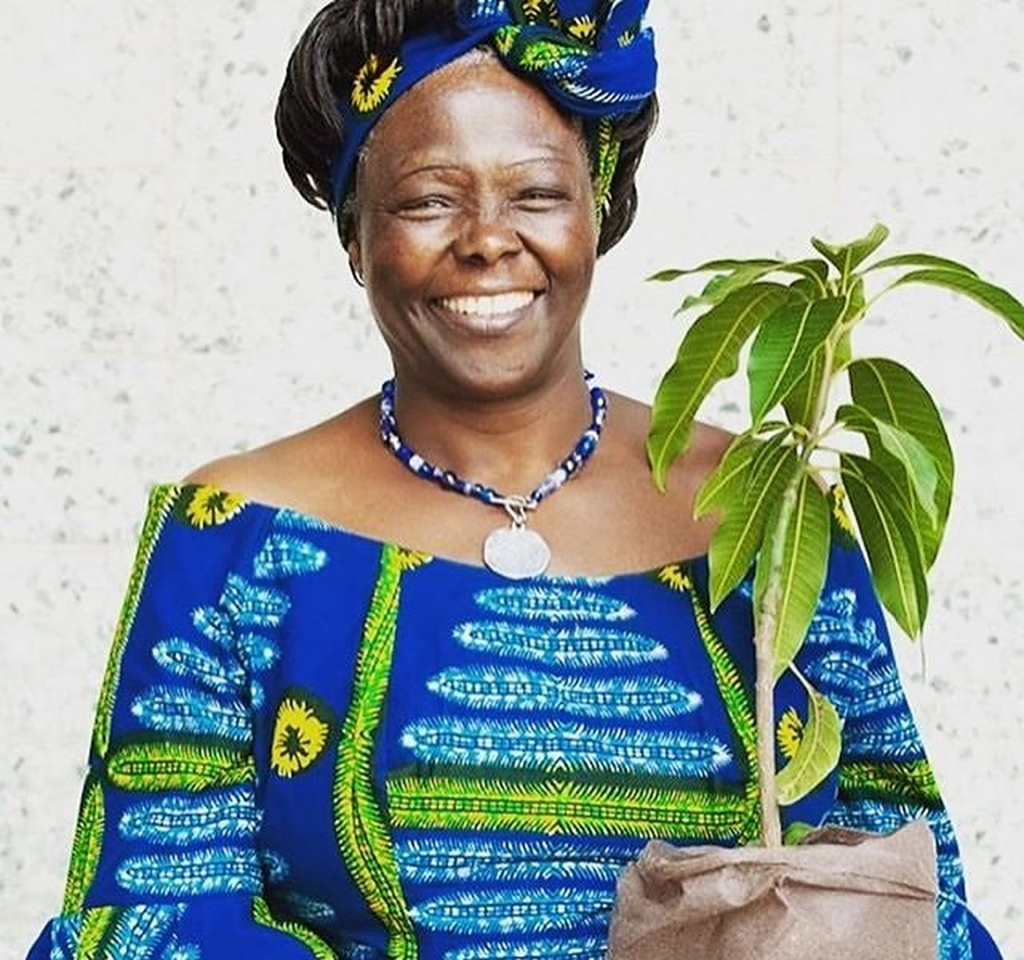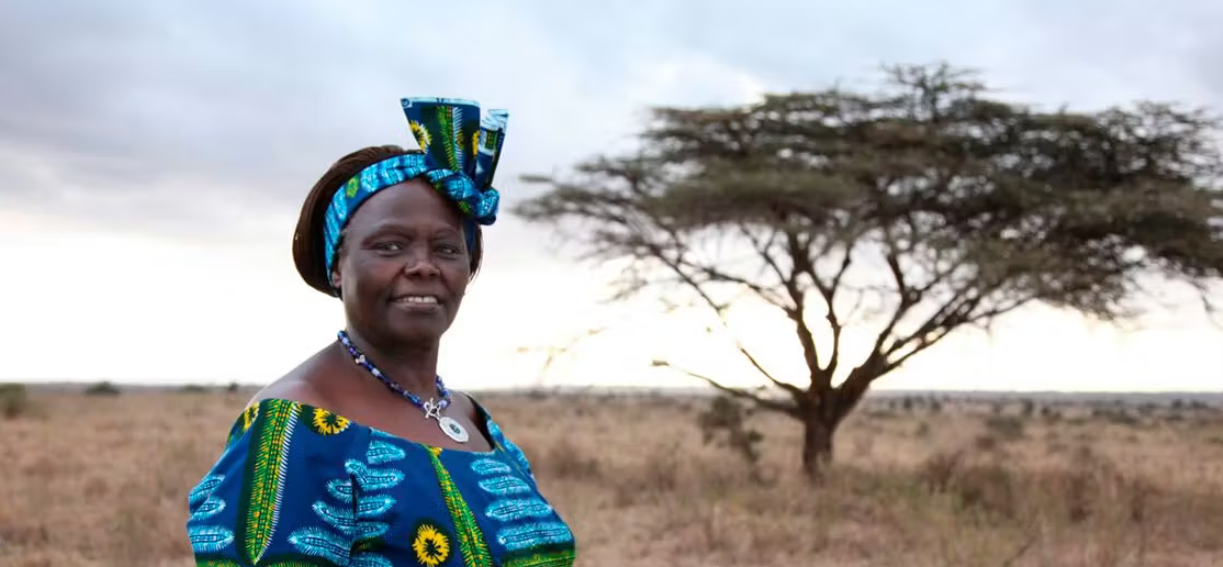Wangari Maathai, a Kenyan environmentalist and Nobel laureate, left an indelible mark on both her country and the world. She founded the Green Belt Movement, empowering women to plant trees and combat deforestation. This article celebrates the life and achievements of Wangari Maathai, whose passion for the environment transformed communities and inspired a global movement for sustainability.
Born in 1940 in the Nyeri District of Kenya, Wangari Maathai’s early life was marked by her determination to pursue education, eventually earning a scholarship to study biology in the United States. She returned to Kenya as a highly educated woman and recognized the environmental degradation occurring in her homeland.

Disturbed by deforestation, soil erosion, and the loss of biodiversity, she founded the Green Belt Movement in 1977. This grassroots organization aimed to empower local communities, particularly women, to plant trees and conserve the environment. Under Maathai’s leadership, the Green Belt Movement planted millions of trees across Kenya, providing vital environmental benefits such as reforestation, soil conservation, and improved access to clean water. Beyond its ecological impact, the movement also had profound social effects by empowering women to take control of their lives and communities. Maathai firmly believed that environmental conservation and human development were interconnected, and her work reflected this holistic perspective.
In recognition of her outstanding efforts, Wangari Maathai was awarded the Nobel Peace Prize in 2004, becoming the first African woman to receive the honor. Her legacy lives on through the Green Belt Movement and its continued work to address environmental challenges while promoting women’s rights and empowerment. Wangari Maathai’s life and work serve as an inspiration to individuals and organizations worldwide, demonstrating the transformative power of grassroots activism and environmental stewardship.


